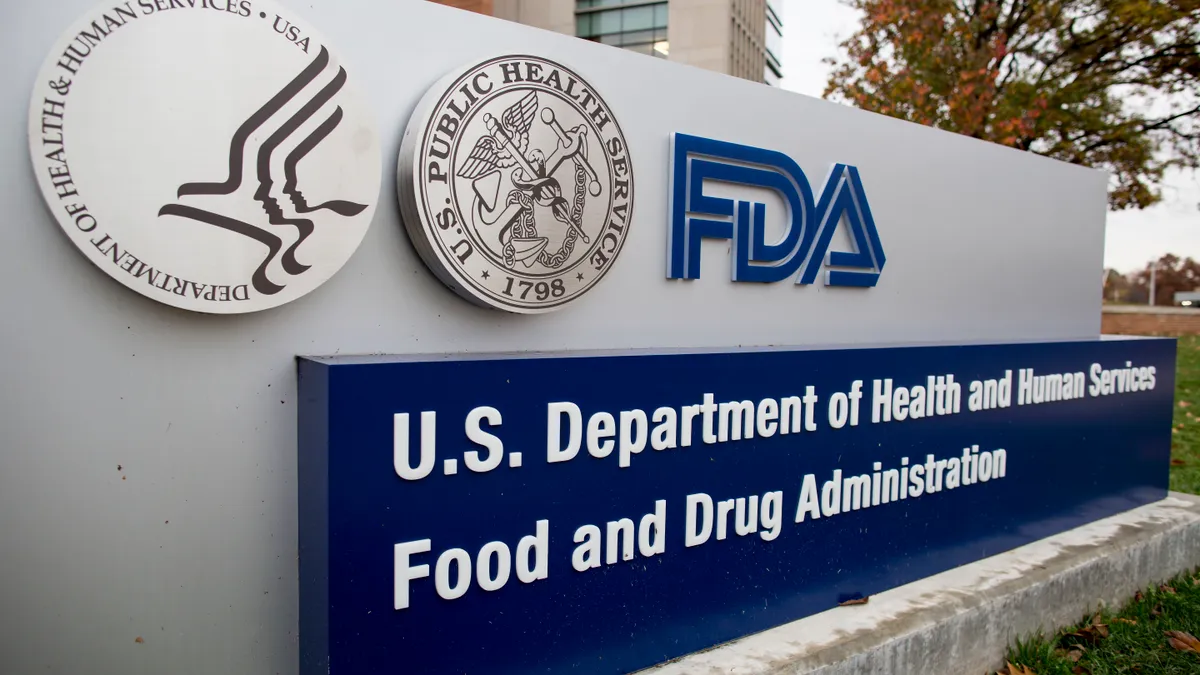Dive Brief:
- FDA on Friday updated a safety alert with new postmarketing data to back a warning that Endologix's AFX endovascular graft treatment for patients with abdominal aortic aneurysms comes with a raised risk of blood continuing to leak into the aneurysm sac.
- Expert advisers to the agency will discuss the potentially life-threatening leak issue and treatment options for patients who have had the Endologix devices implanted, as well as future postmarket surveillance strategies for all endovascular grafts used to treat AAA, at a meeting of its Circulatory System Devices Panel in 2021.
- FDA offered no new safety recommendations in the update to its October 2019 communication. But the agency emphasized that patients who have any of Endologix's three AFX grafts should be monitored annually at minimum for leaks.
Dive Insight:
The company's setbacks involving its endovascular stent grafts, including a recall earlier this year of its Ovation iX system after the device was tied to 65 adverse events and five deaths, culminated in Endologix filing for Chapter 11 bankruptcy reorganization in July. With the support of its largest creditor, Deerfield Partners, the formerly Nasdaq-listed company is now privately held.
The Type III endoleaks that FDA addresses in its safety communications involve three of Endologix's older-model graft systems: AFX with Strata, AFX with Duraply and AFX2. The agency said it is committed to obtaining additional postmarket data due to ongoing concerns about the problem.
FDA issued a Class I recall for the AFX systems in October 2018 due to increased risk of the leaks, after informing healthcare providers earlier that year that the AFX with Strata device, first introduced in 2011 but no longer sold, carried a greater risk than other AAA graft systems on the market.
A year later, FDA warned patients and healthcare providers of a heightened risk of leaks with the company's AFX with Duraply and AFX2 systems. The former was implanted in patients between 2014 and 2018 but is no longer on the market, while the latter has been available since 2016.
In its latest alert, FDA said registry data for patients treated in a large U.S. healthcare system showed the incidence of Type III endoleaks at 2 years of follow-up was 4% for patients with the AFX with Strata device and 5.1% for patients with the AFX with Duraply device. The incidence of Type III endoleaks at two years was 14.1% for the AFX2 in a small patient population.
The agency also highlighted conference abstract results reporting that 25% of patients treated with an Endologix AFX device had major complications within four years. A second conference abstract reported a high risk of major complications within three years for patients with AFX with Strata devices (14%) and patients with AFX with Duraply devices (22%).
FDA also said it is reviewing data provided by Endologix from its ongoing LEOPARD clinical trial of AAA patients who randomly received either AFX with Duraply or AFX2, or an FDA-approved endovascular graft from other manufacturers. The most recent results indicate that the cumulative probability of Type III endoleaks remains at 1% for AFX devices and zero for other endovascular grafts, FDA said.
Patients diagnosed with AAA face the prospect of their aneurysm potentially rupturing due to continued weakening if left untreated. Minimally invasive endovascular grafting is increasingly being used for aneurysm repair over traditional open surgery, with some analysts pegging the global market to top billions of dollars in coming years.
Other companies that sell endovascular AAA graft products include Medtronic, Cook Medical, Gore and Terumo.
Endologix itself is forging ahead with a new AAA stent graft called Alto that it expects to produce better outcomes for patients compared to its current Ovation iX platform. The company announced the U.S. launch of the product in July and has received the CE mark for the system in Europe.
FDA said it will announce details on the agenda, timing and location of the advisory committee meeting in the first quarter of 2021.











